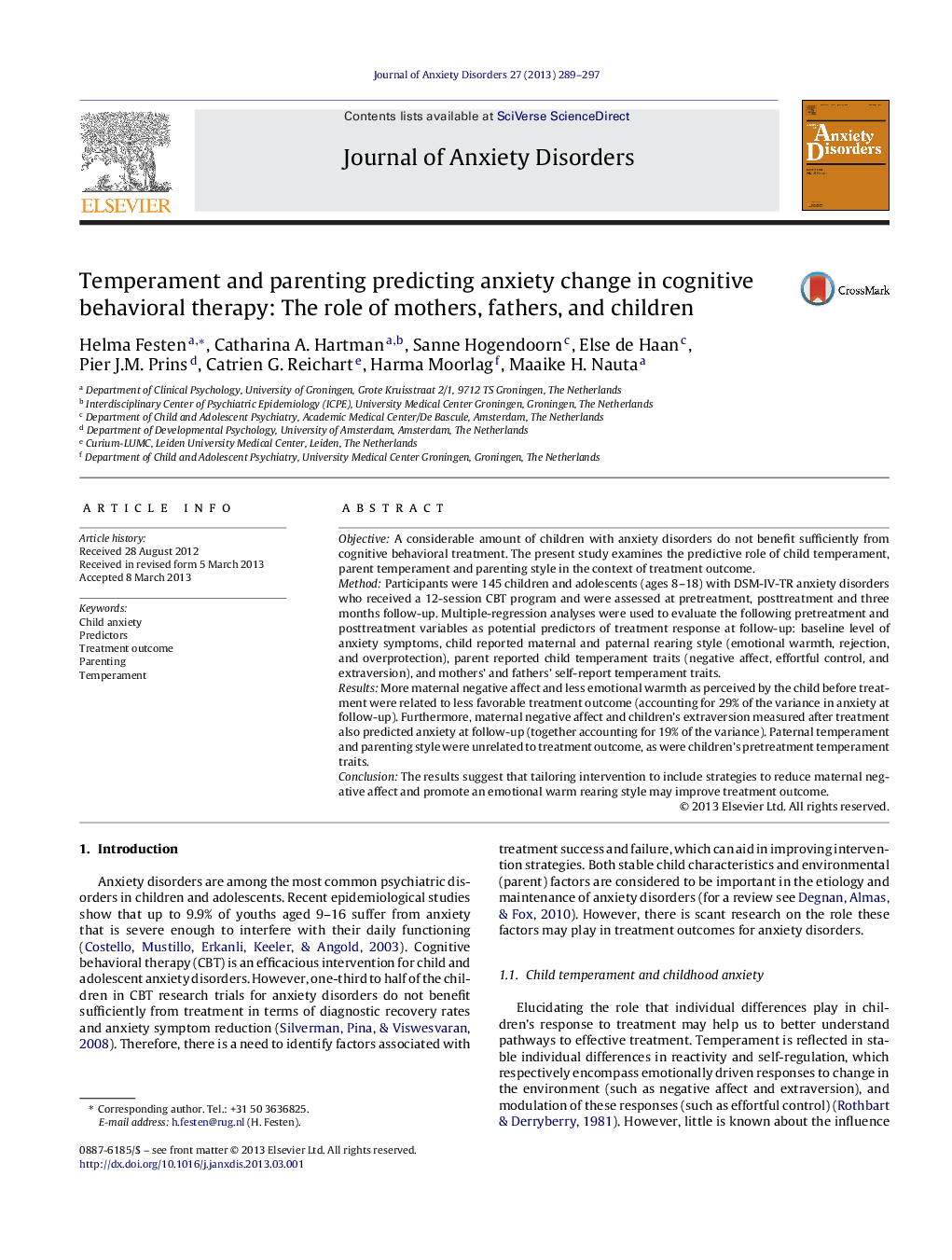| کد مقاله | کد نشریه | سال انتشار | مقاله انگلیسی | نسخه تمام متن |
|---|---|---|---|---|
| 909639 | 917301 | 2013 | 9 صفحه PDF | دانلود رایگان |

• Predictors of treatment outcome in anxious children (N = 145) were investigated.
• Higher maternal negative affect was related to more anxiety symptoms at follow-up 3 months after treatment.
• Lower maternal warmth was associated with more anxiety symptoms at follow-up.
• Children higher on extraversion posttreatment had less anxiety symptoms at follow-up.
• Fathers’ temperament and parenting style were unrelated to treatment outcome.
ObjectiveA considerable amount of children with anxiety disorders do not benefit sufficiently from cognitive behavioral treatment. The present study examines the predictive role of child temperament, parent temperament and parenting style in the context of treatment outcome.MethodParticipants were 145 children and adolescents (ages 8–18) with DSM-IV-TR anxiety disorders who received a 12-session CBT program and were assessed at pretreatment, posttreatment and three months follow-up. Multiple-regression analyses were used to evaluate the following pretreatment and posttreatment variables as potential predictors of treatment response at follow-up: baseline level of anxiety symptoms, child reported maternal and paternal rearing style (emotional warmth, rejection, and overprotection), parent reported child temperament traits (negative affect, effortful control, and extraversion), and mothers’ and fathers’ self-report temperament traits.ResultsMore maternal negative affect and less emotional warmth as perceived by the child before treatment were related to less favorable treatment outcome (accounting for 29% of the variance in anxiety at follow-up). Furthermore, maternal negative affect and children's extraversion measured after treatment also predicted anxiety at follow-up (together accounting for 19% of the variance). Paternal temperament and parenting style were unrelated to treatment outcome, as were children's pretreatment temperament traits.ConclusionThe results suggest that tailoring intervention to include strategies to reduce maternal negative affect and promote an emotional warm rearing style may improve treatment outcome.
Journal: Journal of Anxiety Disorders - Volume 27, Issue 3, April 2013, Pages 289–297